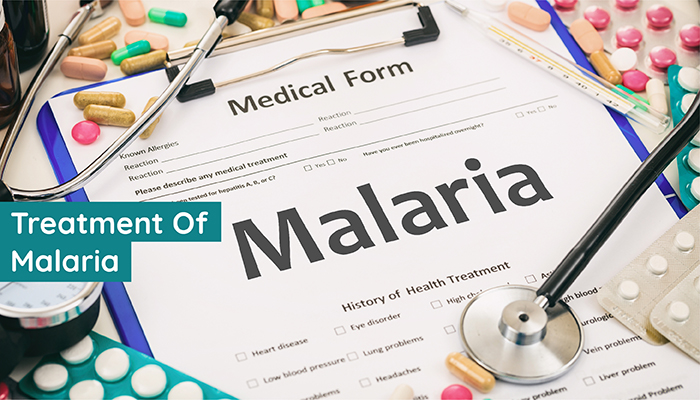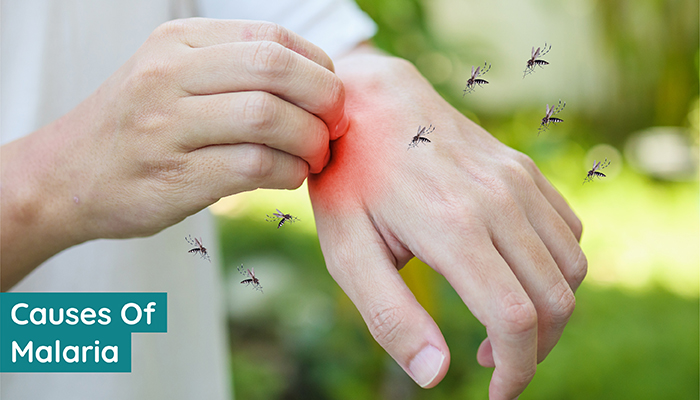Malaria is a parasitic infection spread by mosquito bites. When a mosquito bites you, it releases malaria parasites into your bloodstream. It is the parasites that cause malaria, not viruses or bacteria. Also, if certain kinds of malaria are not treated immediately, they can be fatal. The disease is uncommon in temperate regions but common in tropical locations such as Africa, Southeast Asia, and India.
Treatment for Malaria
Malaria must be treated with antimalarial drugs as soon as possible. Some patients will be hospitalised for specialised medical treatment. Malaria can reoccur at any time. Malaria medications will be prescribed by your doctor to kill the parasite. Some parasites are resistant to treatment of malaria. The treatments used and the length of treatment will differ depending on (a) the kind of malaria parasite you carry, (b) the severity of your sickness, (c) your age, and (d) pregnancy.Medication for Malaria
Medication can be used to treat malaria. Doctors may prescribe certain drugs in combination with others for treatment of malaria. The type of parasite in the patient dictates the medicine and the length of therapy. Antimalarial drugs include:(a) Chloroquine: Chloroquine is the preferable therapy by doctors worldwide. In many regions of the world, parasites have developed resistance to chloroquine, and the treatment of malaria is no longer effective. In such cases, the doctors will prescribe other medicines. (b) Artemisinin-based combination therapies or ACTs: The combination therapy or medications based on artemisinin, which includes two or more medications, is regarded as the most effective way of treating the malaria parasite. Doctors prescribe medication to treat chloroquine-resistant malaria—for example, artesunate-lumefantrine (Coartem) and artesunate-mefloquine.


